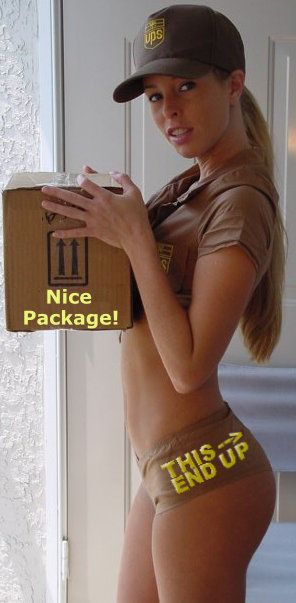Milton Friedman’s beach club
Dubai, in other words, is a vast gated community, the ultimate Green Zone. But even more than Singapore or Texas, it is also the apotheosis of the neo-liberal values of contemporary capitalism: a society that might have been designed by the Economics Department of the University of Chicago. Dubai, indeed, has achieved what American reactionaries only dream of—an oasis of free enterprise without income taxes, trade unions or opposition parties (there are no elections). As befits a paradise of consumption, its unofficial national holiday, as well as its global logo, is the celebrated Shopping Festival, a month-long extravaganza sponsored by the city’s 25 malls that begins on 12 January and attracts 4 million upscale shoppers, primarily from the Middle East and South Asia. [35]
Feudal absolutism—the Maktoum dynasty owns the land area of Dubai —meanwhile has been spruced up as the last word in enlightened corporate administration, and the political sphere has been officially collapsed into the managerial. ‘People refer to our crown prince as the chief executive officer of Dubai. It’s because, genuinely, he runs government as a private business for the sake of the private sector, not for the sake of the state’, says Saeed al-Muntafiq, head of the Dubai Development and Investment Authority. Moreover, if the country is a single business, as al-Maktoum maintains, then ‘representative government’ is besides the point: after all, General Electric and Exxon are not democracies and no one—except for raving socialists—expects either to be so.
The state, accordingly, is almost indistinguishable from private enterprise. Dubai’s top managers—all commoners, hired meritocratically—simultaneously hold strategic government portfolios and manage a major Maktoum-controlled real-estate development company. ‘Government’, indeed, is really an equities management team led by three top players who compete with one another to earn the highest returns for al-Maktoum (see Table 2). ‘In such a system’, writes William Wallis, ‘the concept of a conflict of interest is barely recognized’. [36] Because the country has one ultimate landlord, and myriad streams of rent and lease payments all flow to a single beneficiary, Dubai is able to dispense with most of the sales, customs and income taxes essential to governments elsewhere. The minimal tax burden, in turn, leverages the sale or lease of Dubai’s golden sands. Oil-rich Abu Dhabi, meanwhile, subsidizes the residual state functions, including foreign relations and defence, entrusted to the Emirates’ federal administration—itself a condominium of the interests of the ruling sheikhs and their relatives.
In a similar spirit, personal liberty in Dubai derives strictly from the business plan, not from a constitution, much less ‘inalienable rights’. Al-Maktoum and his executives have to arbitrate between lineage-based power and Islamic law, on the one hand, and Western business culture and recreational decadence on the other. Their ingenious solution is a regime of what might be called ‘modular liberties’ based on the rigorous spatial segregation of economic functions and ethnically circumscribed social classes. To understand how this works in practice, it is necessary briefly to survey Dubai’s overall development strategy.
Although tourist development and its excesses generate most of the ‘buzz’ about Dubai, the city-state has extraordinary ambitions to capture as much value-added as possible through a series of specialized free-trade zones and high-tech clusters. ‘One of the ways that this trading town along a creek has reformulated itself into a megalopolis’, writes an abc News commentator, ‘is by throwing in everything and the kitchen sink as incentives for companies to invest in and relocate to Dubai. There are free-trade zones where 100 per cent foreign ownership is allowed, with no individual or corporate taxes or import/export duties whatsoever.’ [37] The original free-trade zone in the port district of Jebel Ali now has several thousand resident trading and industrial firms, and is the major base for American corporations selling to the Saudi and Gulf markets. [38]
Most future growth, however, is expected to be generated within an archipelago of specialized ‘clusters’. The largest of these cities-within-the-city are Internet City, already the Arab world’s principal information technology hub, with local subsidiaries of Dell, Hewlett-Packard, Microsoft, and others; Media City, home to the Al Arabiya satellite network and various international news organizations; and the Dubai International Financial Centre, whose dfix al-Maktoum hopes will grow into the largest stock exchange between Europe and East Asia as foreign investors rush to tap the Gulf’s vast reservoir of oil earnings. In addition to these mega-enclaves, each with tens of thousands of employees, Dubai also hosts or is planning to build a Humanitarian Aid City, as a base for disaster relief; a free-trade zone dedicated to the sale of used cars; a Dubai Metals and Commodities Centre; a ‘Chess City’ headquartering the International Chess Association and designed as a vast chess board with two ‘King’ towers, each 64 storeys high; and a $6 billion Healthcare Village, in collaboration with the Harvard Medical School, that will offer the wealthy classes of the Gulf region state-of-the-art American medical technology. [39]
Other cities in the region, of course, have free-trade zones and high-tech clusters, but only Dubai has allowed each enclave to operate under regulatory and legal bubble-domes tailored to the specific needs of foreign capital and expat professionals. ‘Carving out lucrative niches with their own special rules’, claims the Financial Times, ‘has been at the heart of Dubai’s development strategy’. [40] Thus press censorship (flagrant in the rest of Dubai) is largely suspended inside Media City, while internet access (regulated for content elsewhere) is absolutely unfettered inside Internet City. The uae has permitted Dubai to set up ‘an entirely separate, Western-based commercial system for its financial district that would do business in dollars, and in English’. Although not without ensuing controversy, Dubai even imported British financial regulators and retired judges to bolster confidence that dfix plays by the same rules as Zurich, London and New York. [41] Meanwhile, to promote the sell-off of Palm Jumeirah mansions and the private islands that make up the ‘island world’, al-Maktoum in May 2002 announced a ‘freehold revolution’, unique in the region, that allows foreigners to buy luxury property outright and not just as a 99-year lease. [42]
In addition to these enclaved regimes of greater media and business freedom, Dubai is also famously tolerant of Western vices, with the exception of recreational drugs. In contrast to Saudi Arabia or even Kuwait City, booze flows freely in the city’s hotels and expat bars, and no one looks askance at halter tops or even string bikinis on the beach. Dubai—any of the hipper guidebooks will advise—is also the ‘Bangkok of the Middle East’, with thousands of Russian, Armenian, Indian and Iranian prostitutes controlled by various transnational gangs and mafias. The Russian girls at the bar are the glamorous façade of a sinister sex trade built on kidnapping, slavery and sadistic violence. Al-Maktoum and his thoroughly modern regime, of course, disavow any collusion with this burgeoning red-light industry, although insiders know that the whores are essential to keeping the 5-star hotels full of European and Arab businessmen. [43] When expats extol Dubai’s unique ‘openness’, it is this freedom to carouse and debauch—not to organize unions or publish critical opinions—that they are usually praising.
Sunday, May 20, 2007
Subscribe to:
Post Comments (Atom)















No comments:
Post a Comment